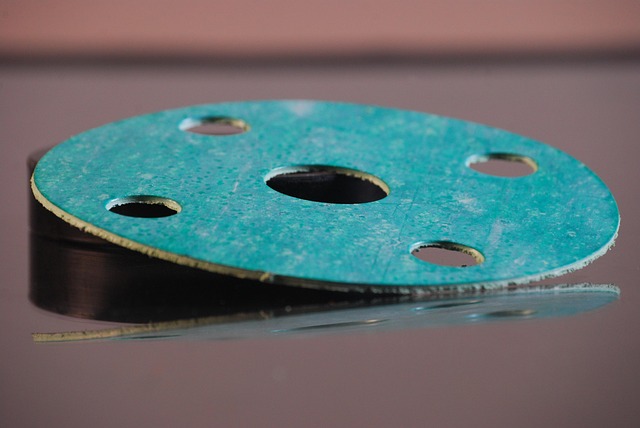Discover Welding Training Programs for Beginners in Düsseldorf
In Düsseldorf, individuals interested in starting a journey in welding can find a variety of training programs tailored for beginners. These programs offer essential skills and knowledge, paving the way for careers in welding and metal fabrication. Explore the opportunities where fabrication and welding companies thrive, and gain insight into the training available to help develop proficiency in this essential trade.

What Does a Comprehensive Welding Training Program for Beginners Include?
A well-structured welding training program for beginners in Düsseldorf typically covers both theoretical knowledge and hands-on practice. The foundation starts with safety training, as welding involves working with extreme heat, electricity, and potentially hazardous materials. Students learn proper use of personal protective equipment (PPE), workspace safety protocols, and emergency procedures.
Technical instruction includes the science behind different welding processes, understanding metal properties, and reading engineering drawings. Most comprehensive programs cover various welding techniques including MIG (Metal Inert Gas), TIG (Tungsten Inert Gas), stick welding, and sometimes oxyacetylene welding. Basic metallurgy courses help students understand how different metals react to heat and welding processes.
Practical training forms the core of any quality welding program. Students spend significant time in workshop environments practicing various welding positions (flat, horizontal, vertical, and overhead) on different materials and joint types. They learn proper torch and electrode handling, equipment maintenance, and troubleshooting common welding problems. Most programs conclude with certification preparation and testing to industry standards such as those set by the German Welding Society (DVS).
Where Are the Key Centers for Welding and Metal Fabrication Training in Düsseldorf?
Düsseldorf offers several established institutions where beginners can receive quality welding training. The Handwerkskammer Düsseldorf (Chamber of Crafts) provides comprehensive vocational training programs that combine classroom learning with apprenticeships in local companies. Their welding workshops feature modern equipment and experienced instructors with industry backgrounds.
The Berufskolleg für Technik und Informatik in Düsseldorf offers specialized welding courses as part of their technical education programs. These courses often feature strong connections with local industry, ensuring that training meets current workforce needs. Their facilities typically include up-to-date welding equipment and workstations that simulate real-world environments.
Several private technical schools in the Düsseldorf region also provide focused welding training. The Schweißtechnische Lehr- und Versuchsanstalt (SLV) in nearby Duisburg is renowned for its welding education and certification programs. They offer courses ranging from basic introductions to specialized advanced techniques and certification preparation.
Many large manufacturing companies in the Rhine-Ruhr metropolitan area also partner with educational institutions to offer dual training programs where students alternate between classroom instruction and paid on-the-job training. These programs provide immediate practical application of skills while earning income during the learning process.
What Opportunities Are Available with Fabrication and Welding Companies After Training?
Completing a welding training program in Düsseldorf opens numerous career pathways in the region’s robust manufacturing sector. Entry-level positions as welding operators or fabrication assistants provide opportunities to apply basic skills while continuing to develop expertise. These positions typically involve following established procedures to create components according to specifications and drawings.
As welders gain experience and additional certifications, they can advance to specialized roles such as pipe welders, structural welders, or TIG specialists. These positions often command higher salaries due to the precise skills and additional certifications required. The automotive manufacturing sector in the region, including suppliers to major car manufacturers, regularly seeks qualified welders for both production and prototype work.
The industrial maintenance field offers another career path for trained welders. These positions involve repair work, modifications to existing structures, and emergency repairs in manufacturing facilities. Maintenance welders often need to master multiple welding processes and work in challenging environments or tight spaces.
Entrepreneurial welders may establish their own fabrication businesses or specialized welding services. The strong small and medium enterprise network in North Rhine-Westphalia provides opportunities for subcontracting and specialist work. Additionally, qualified welders with appropriate certifications can find opportunities in neighboring countries like the Netherlands, Belgium, and Luxembourg, where similar industrial bases create steady demand for skilled metalworkers.
Certification and Continuing Education Options in Düsseldorf
Most welding training programs in Düsseldorf prepare students for industry-recognized certifications. The German Welding Society (DVS) offers various certification levels that are recognized throughout Germany and often internationally. These certifications specify which welding processes, materials, and positions a welder is qualified to perform.
For career advancement, continuing education is essential in the welding field. Advanced courses in specialized techniques like underwater welding, aluminum welding, or exotic metals are available through technical schools and professional training centers. Additional certifications in inspection, quality control, or welding supervision can lead to higher-level positions with increased responsibilities and compensation.
The European Welding Federation (EWF) certifications provide another pathway for professional development, opening opportunities throughout the European Union. Many employers in Düsseldorf’s manufacturing sector value these international credentials, particularly for companies with operations across multiple countries.
Welding technology continues to evolve, with advances in materials, equipment, and techniques. Periodic refresher courses and additional training ensure that welders stay current with industry developments and maintain their skills at optimal levels. Most training providers in Düsseldorf offer flexible scheduling options, including evening and weekend courses, to accommodate working professionals seeking to upgrade their qualifications.
Conclusion
Welding training programs in Düsseldorf provide accessible entry points to a skilled trade with strong employment prospects. The combination of quality education facilities, a robust industrial base, and recognized certification pathways creates an ideal environment for beginning welders. With proper training and continuing education, welding professionals in Düsseldorf can build rewarding careers in manufacturing, construction, maintenance, or specialized fabrication fields. The city’s strategic location in one of Europe’s most industrialized regions ensures ongoing demand for qualified welding professionals across numerous sectors.




